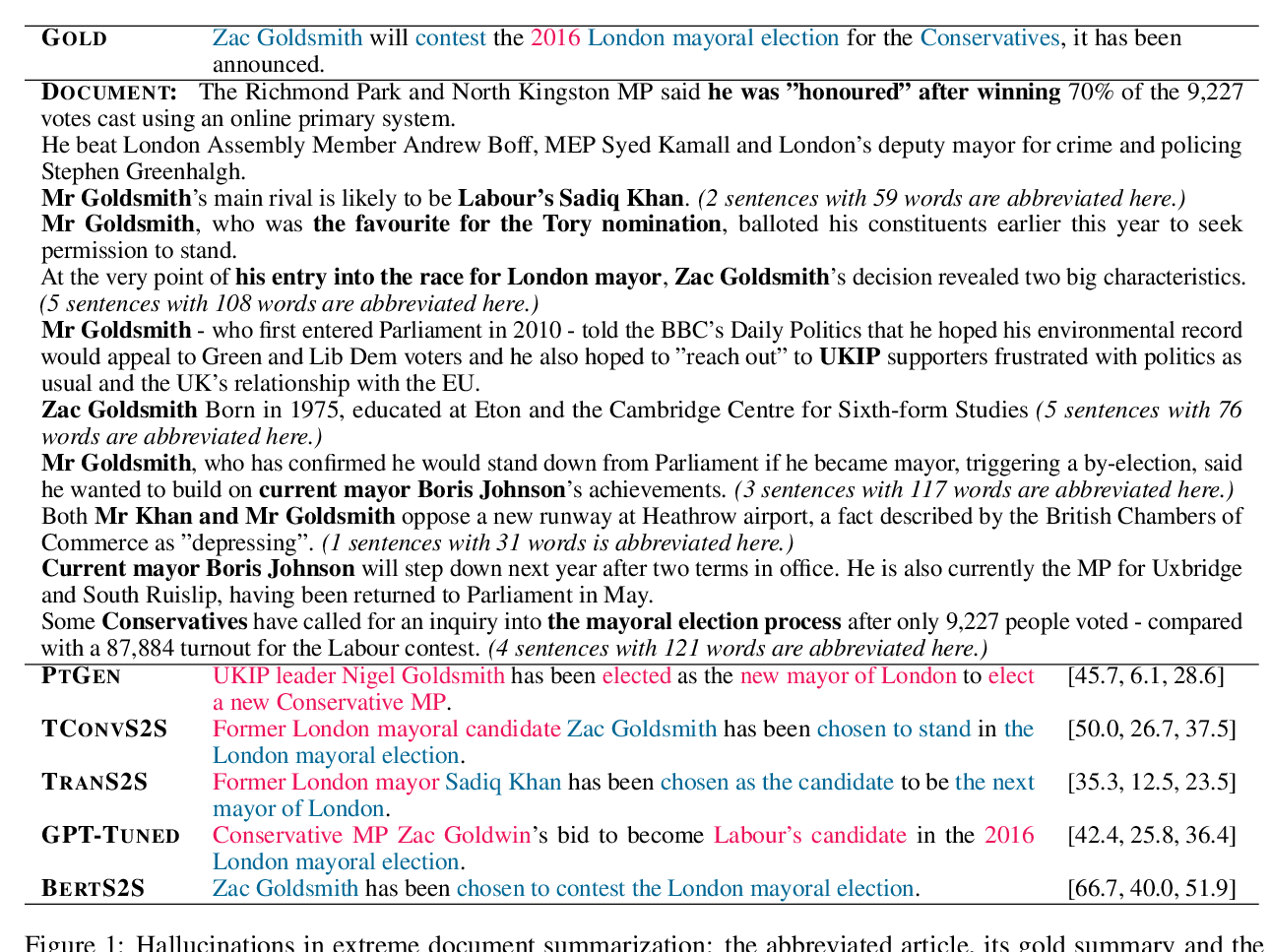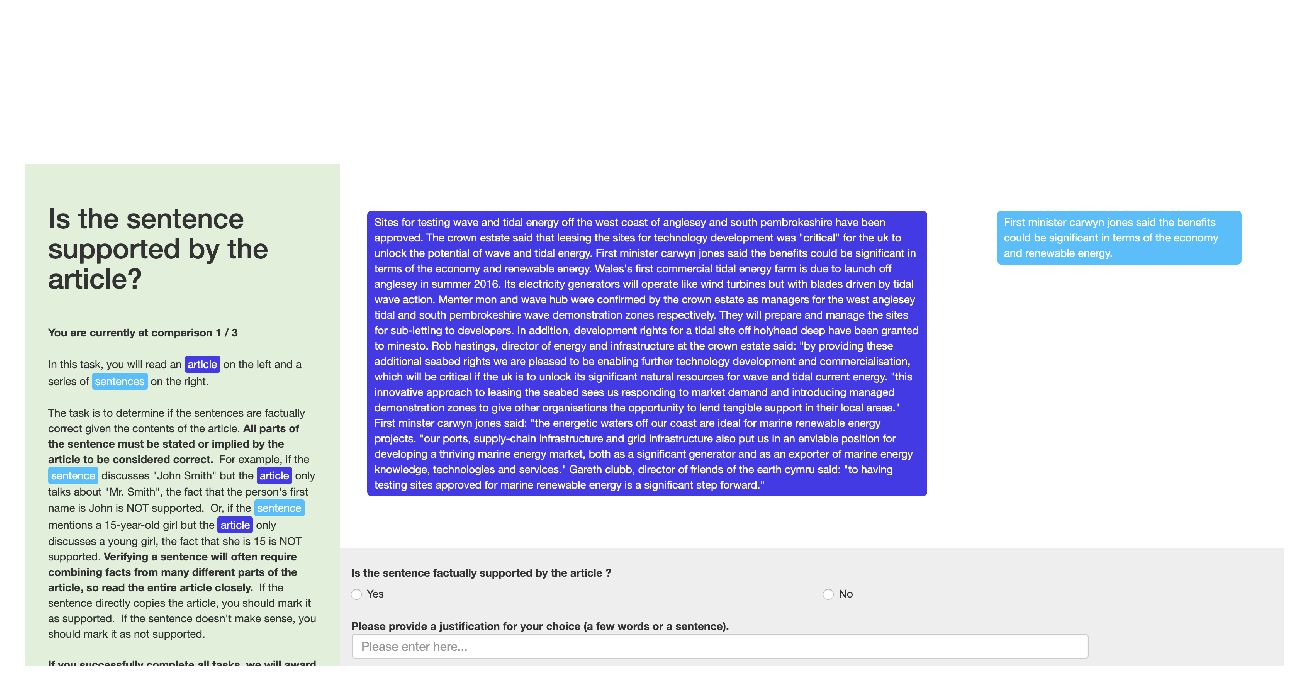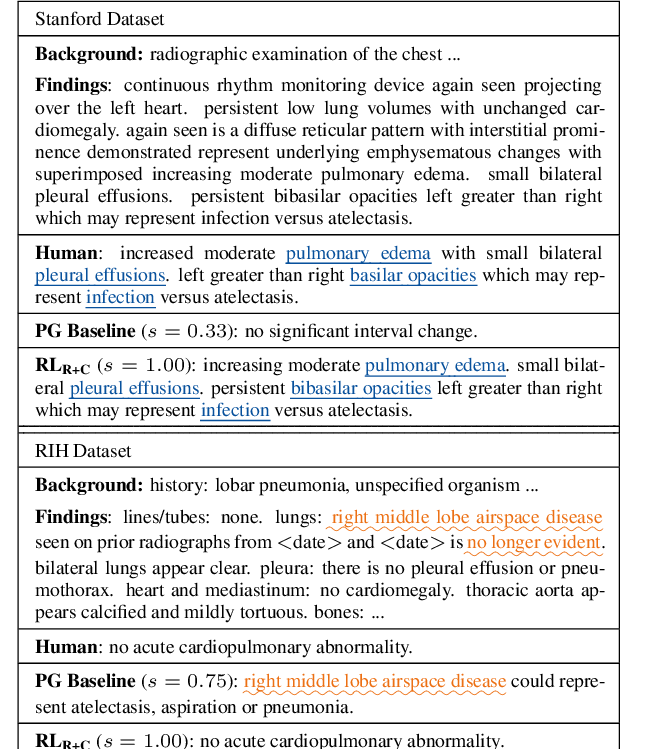FEQA: A Question Answering Evaluation Framework for Faithfulness Assessment in Abstractive Summarization
Esin Durmus, He He, Mona Diab
Summarization Long Paper
Session 9A: Jul 7
(17:00-18:00 GMT)

Session 10B: Jul 7
(21:00-22:00 GMT)

Abstract:
Neural abstractive summarization models are prone to generate content inconsistent with the source document, i.e. unfaithful. Existing automatic metrics do not capture such mistakes effectively. We tackle the problem of evaluating faithfulness of a generated summary given its source document. We first collected human annotations of faithfulness for outputs from numerous models on two datasets. We find that current models exhibit a trade-off between abstractiveness and faithfulness: outputs with less word overlap with the source document are more likely to be unfaithful. Next, we propose an automatic question answering (QA) based metric for faithfulness, FEQA, which leverages recent advances in reading comprehension. Given question-answer pairs generated from the summary, a QA model extracts answers from the document; non-matched answers indicate unfaithful information in the summary. Among metrics based on word overlap, embedding similarity, and learned language understanding models, our QA-based metric has significantly higher correlation with human faithfulness scores, especially on highly abstractive summaries.
You can open the
pre-recorded video
in a separate window.
NOTE: The SlidesLive video may display a random order of the authors.
The correct author list is shown at the top of this webpage.
Similar Papers
On Faithfulness and Factuality in Abstractive Summarization
Joshua Maynez, Shashi Narayan, Bernd Bohnet, Ryan McDonald,

Asking and Answering Questions to Evaluate the Factual Consistency of Summaries
Alex Wang, Kyunghyun Cho, Mike Lewis,

Optimizing the Factual Correctness of a Summary: A Study of Summarizing Radiology Reports
Yuhao Zhang, Derek Merck, Emily Tsai, Christopher D. Manning, Curtis Langlotz,

Towards Faithfully Interpretable NLP Systems: How Should We Define and Evaluate Faithfulness?
Alon Jacovi, Yoav Goldberg,
